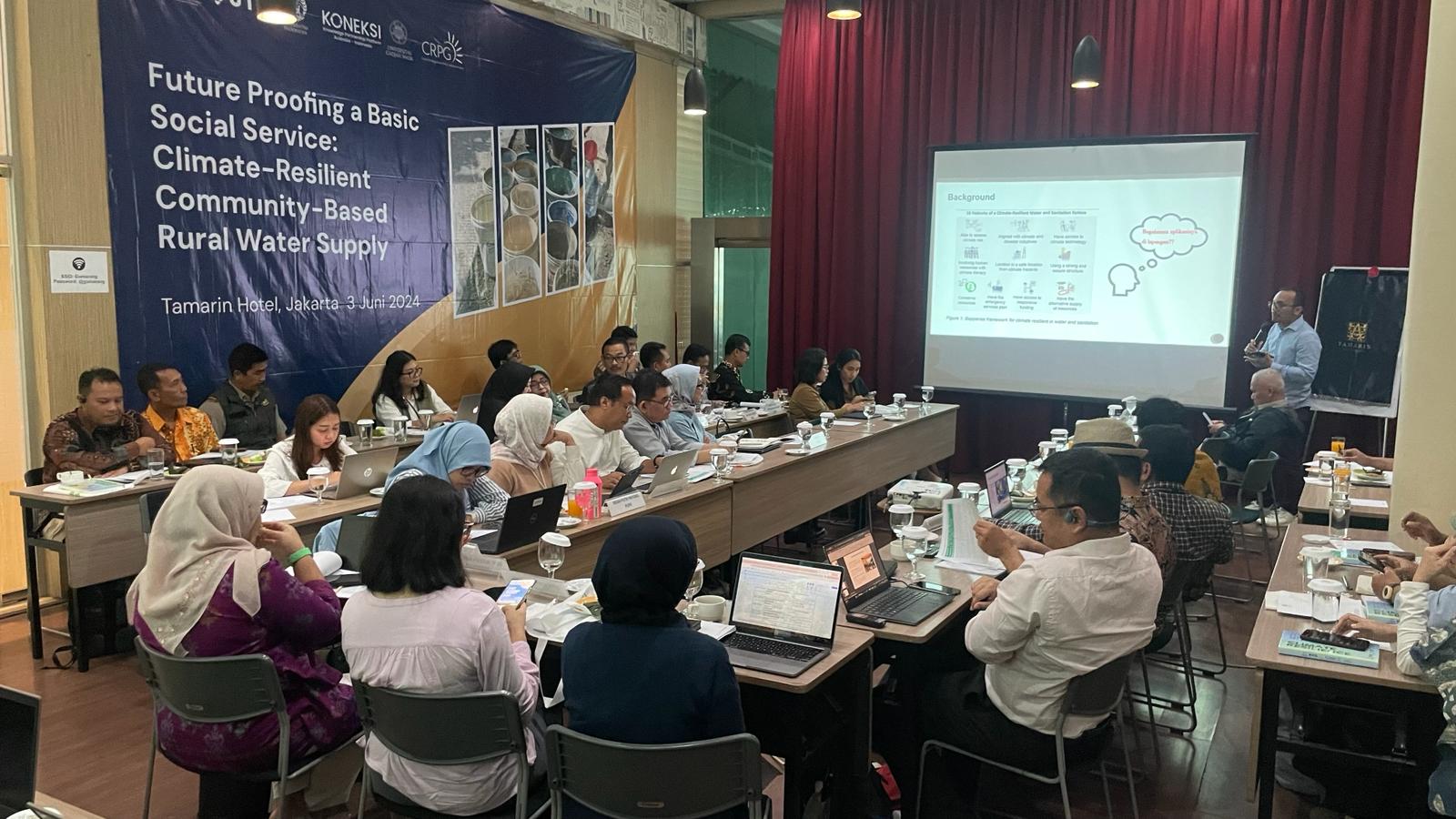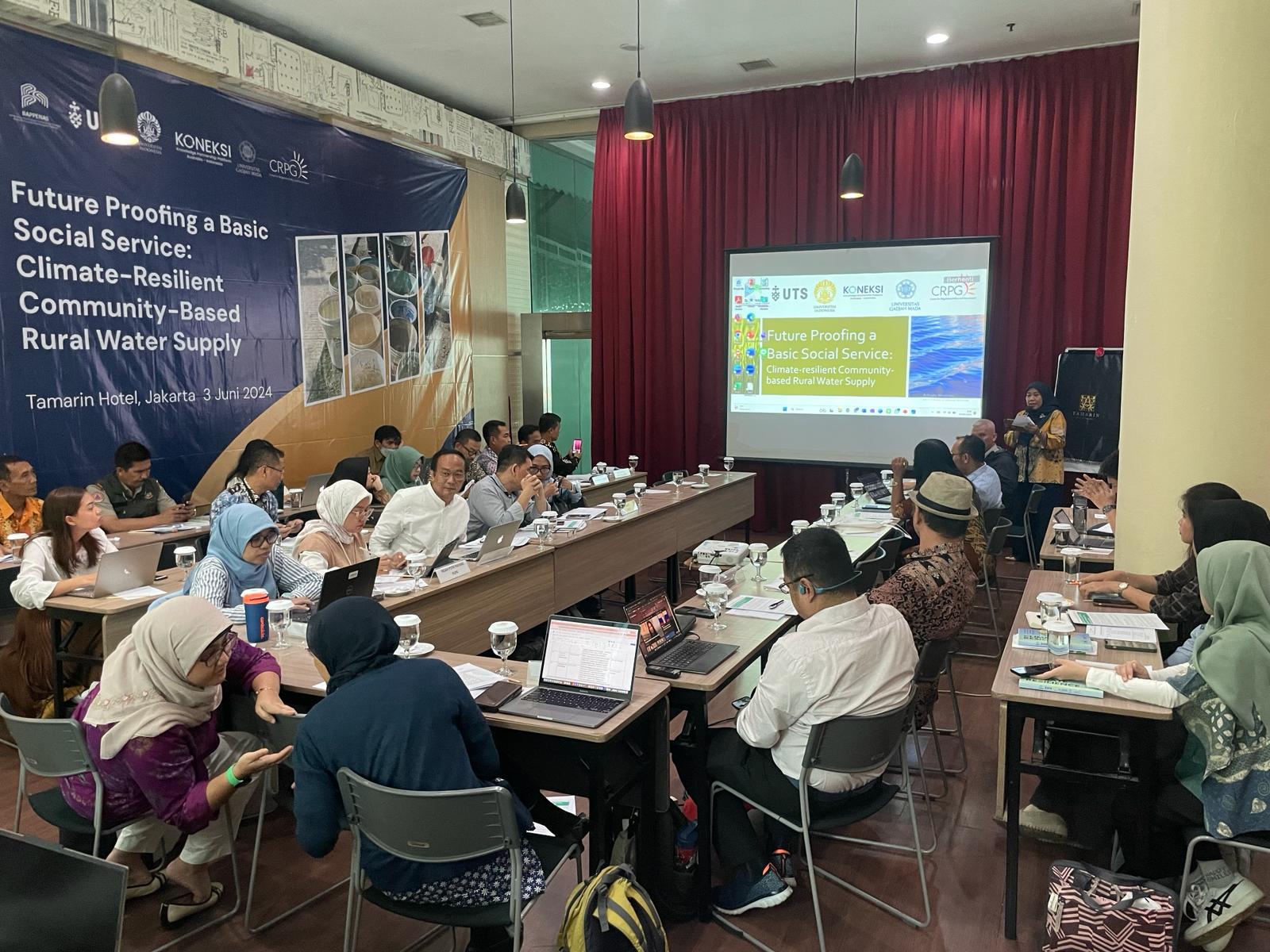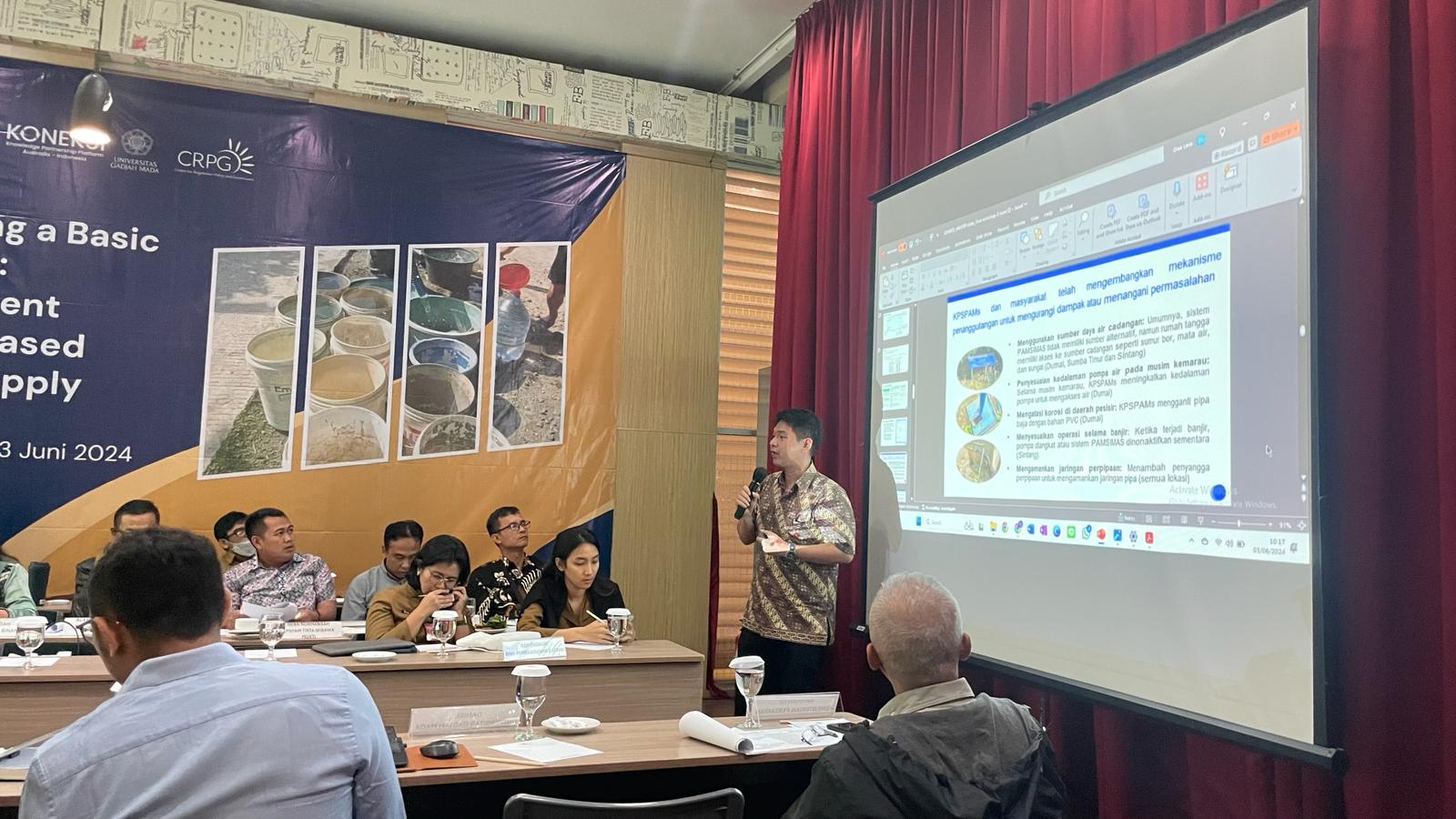Achieving climate resilience and economic transformation in Indonesia requires a foundation for a productive and healthy population, including a reliable supply of clean water. To this end, a collaborative team for Knowledge, Innovation, and Technology from Australia and Indonesia, part of the KONEKSI program, conducted research and reported final findings on the resilience of the Community-Based Water Supply and Sanitation System (PAMSIMAS) to climate change.
The research results were presented by a team comprising the University of Indonesia (UI), the University of Technology Sydney (UTS), the Center for Regulation Policy and Governance (CRPG), and Gadjah Mada University (UGM). The UI team included Dr. Cindy Rianti Priadi as Team Leader Comp B and Dr.-Ing. Sucipta Laksono as Co-Lead Researcher. This presentation was held during a national workshop titled “Climate-Resilient Community-Based Water Supply” on Monday (3/6) at Tamarin Hotel, Central Jakarta.
During the event, the KONEKSI team had the opportunity to introduce a self-assessment tool for KPSPAMS named the Rural Water Supply Climate-Resilient Monitoring Tool (RWS-CRMT). This tool can assess the vulnerability/resilience of rural water services to climate change. Its development process began in September 2023 and continued until May 2024. The RWS-CRMT was tested on 100 Water Supply and Sanitation Management Groups (KPSPAMS) spread across 14 provinces in Indonesia, including Central Java, Gorontalo, South Sulawesi, West Nusa Tenggara, West Sumatra, Yogyakarta Special Region, West Java, Riau, Lampung, West Kalimantan, East Nusa Tenggara, South Sumatra, South Kalimantan, and East Kalimantan.
“We must appreciate the efforts made by PAMSIMAS in addressing technical issues. The impacts of climate change are already being felt, and follow-up actions such as having backup water sources and adjusting materials, pipes, and pumps are necessary,” said Dr.-Ing. Sucipta.
The Dean of FTUI, Prof. Dr. Ir. Heri Hermansyah, M.Eng., IPU, stated, “This collaboration between institutions has created a water service vulnerability assessment tool. This initiative is crucial for addressing issues of water access and quality, especially in the face of climate change and population growth. This assessment tool will help identify water service challenges and ensure safe and affordable access for all. I appreciate the dedication of the research team from the three universities and the regulatory centre, and I hope this collaboration continues to produce innovations beneficial to society. Thank you to all involved parties.”
The event was attended by representatives from various stakeholders, including the National Development Planning Agency (BAPPENAS); the National Research and Innovation Agency (BRIN); the Ministry of Education, Culture, Research, and Technology (Kemendikbudristek); the Ministry of Home Affairs of the Republic of Indonesia (Kemendagri); Water.org; the World Bank; the Green Development Innovation; the Ministry of Public Works and Housing (PUPR); UNICEF; local governments of the study areas; and Water Supply and Sanitation Management Groups (KPSPAMS). Through this workshop, government agencies, academics, and non-profit organizations explored mitigation and adaptation opportunities to address the impacts of climate change on PAMSIMAS.
“Inclusivity is currently being continuously developed. From free water use for religious infrastructure to inclusive contributions for low-income communities, various PAMSIMAS have implemented such measures. There are also social issues identified from field studies, such as the lack of transparency regarding contributions and the role of women in PAMSIMAS programs,” said Dr. Cindy Rianti Priadi, who is also the Head of the Environmental Engineering Study Program at UI, explaining the aspects of GEDSI (Gender Equality, Disability, and Social Inclusion) in achieving climate-resilient PAMSIMAS.
She added that with strong collaboration and coordination between academics, the government, and researchers, it is hoped that this research can integrate recommendations and policies to be followed up by the relevant parties. Through joint efforts, the implementation and development of PAMSIMAS can be optimized based on the research findings presented in this seminar.
***
Public Communication Office
Faculty of Engineering, University of Indonesia



